
Mid-June 2023 the 6th Latvian Rural Communities Parliament took place in the town of Ērgļi. ARC President Hannes Lorenzen was asked to share his views on the past, the challenges of today, and ideas for the future. In this excerpt from the speech he gave, Hannes reflects on how three key ideas – Intergenerational Responsibility, Reduction (or Sufficiency) and Rural Resilience – can frame action for radical change.
I am aware that one day I might be asked by my grandchildren: what did you do to protect the world from climate disaster, biodiversity extinction or wars on water?
These questions are already here and burning, without them asking me. We must be prepared to find answers now.
The 6th Latvian Rural Communities Parliament has already heard many encouraging proposals on what we could and should do. I will just add three ideas: Intergenerational Responsibility – Reduction – Rural Resilience.

1. Intergenerational Responsibility
At this morning’s session we are putting feathers on our caps. Can we really do that? Isn’t that a bit early?
Yes, it is impressive what we have reached in a few decades. Our rural movements have gained strength and recognition. We are a growing family and a strong voice across Europe, starting with Hela Sverige Ska Leva in Sweden, Ecovast and Forum Synergies, ERCA, Prepare, the National and the European Rural Parliaments and – with support from the European Commission and member states – the more established LAGs of LEADER, the CLLDs and the rural research community.
We are heard by governments and the European Commission, they join us for our gatherings and they offer – or ask for – support with visions and pacts. But have we been able to change or shape rural policies and administrative frameworks sufficiently? Have we done enough to establish new governance rules and strengthen democratic decision-making? Perhaps yes, we did in smaller regions and countries like in the Baltics. But not yet enough in the wider Europe.

It seems that as movements we are not yet sufficiently influential and resilient. That also has to do with the missing of generational transition and intergenerational understanding. The generation of the founders of European rural movements is now quickly taking the back seat, they are withdrawing from steering positions, or passing away – like recently Michael Dower.
The younger generation is in my view not yet in the driver’s seat – that is not ideal for driving on. I had that impression at the European Rural Parliament in Kielce and other occasions. Moving into long term commitments seems difficult. Elder activists like me have been privileged with flexible job conditions and reasonable pensions. Younger people in jobs seem to struggle for a reasonable work-life balance, or they quickly find themselves at the brink of burnout.
A movement can only partly be professional – just as professionals can only partly be a movement. Meanwhile, respect for the elder is a good thing but it is often just a friendly honouring of the legacy of the past, instead of tapping into their experience and know-how, including their treasures of networks, connections, and strategic knowledge.
It seems that more space and time is needed for reflection and action. Generations live in different worlds which are rapidly changing. I may be wrong, but volunteering today only seems to be possible for elderly people and dropouts. In any case, my conclusion is: we need space for intergenerational exchange and responsibility in order to move forward.
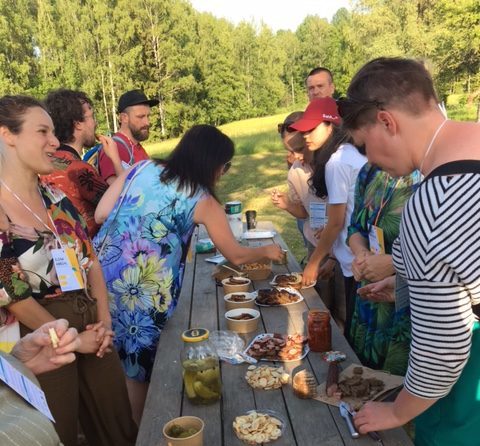
2. Reduction (or Sufficiency)
We live in a world of increased acceleration and extraction. Our economies become ever more productive with technological progress, information flow, and global trade. Artificial intelligence is the most recent trigger in this race. Even what is called “transition towards carbon neutral economies” consumes growing non-renewable resources and energy.
In this race there is shrinking space for reflection and action to limit human impact on nature. Movements like slow food, degrowth, fair transition, or “smart shrinking” raise this question: “What can we drop or leave to slow down and reduce destructive impact?”
This thought seems to be extremely unpopular among politicians. Promoting Sufficiency and degrowth is perceived as undermining the system, spoiling the fun side of life, or even killing freedom. It is an absolute no-go for election campaigns. But the notion of sufficiency is pretty resilient and here to stay. Early warnings on the limits of growth, climate change and biodiversity loss already came up sixty years ago – and were ignored. Also, rapid degradation of soils and water reserves, even the impact of rural exodus on increasing forest fires – are not recent news, they are known.
Uncomfortable truths are forgettable. We seem to lose our collective and intergenerational intelligence.
Does the Club of Rome’s The Limits of Growth ring a bell to you? Or Carson’s Silent Spring? Or Schumacher’s Small is Beautiful? The problem is that their warnings are already reality, just as these days state of climate reports lose their best before deadline very quickly.
Are we increasingly forgetful because we lose hope in ourselves? I am not just talking about my generation of silver necks. The rate of burnout and drowning into depression is skyrocketing in our countries. This development is treated as individual deviations or mental illness. We are lost in denial and speed.
Are we Europeans sleepwalking in our histories? We have ignored the signals of depletion and extinction of nature just as we have ignored our own European history of colonialism which is now coming back on us. Migration into Europe with all its challenges for our societies is a flashback of our own imperialism.
We just heard from Edvards Kušners of the Bank of Latvia that scenarios projected into the future are not about shrinking rural population but, rather, in light of climate migration, a rapid and radical increase of the population, with influx of people from increasingly inhabitable regions of the South to more temperate climates. Banks usually know where people and money go.
Today’s populism against migration and the growing acceptance of autocrats is a sign of widespread denial and loss of interest in our future. Our past is coming back on us because we do not know and do not talk enough about the crises in our own lives, our societies and the world around us – we are forgetful.
So, to conclude, what does “reduction” or, better, “sufficiency” mean?
It means learning to live within our earth’s boundaries. We have passed those boundaries many times already – in many ways. Sufficiency means actively limiting our impact on nature while upgrading our attention, presence, education and collective intelligence to make transition happen where we are – and pushing hard for policy change on all levels.
We have been strong in making our voices heard – we must take action to make radical change happen.
3. Rural Resilience

We are in times of multiple crises among which we seem to have lost orientation. What we need is to get prepared to cope with all coming crises simultaneously.
We have just left a pandemic behind – it seems – with major impacts on public health and the global economy, and we may face another one soon.
The global trade and financial systems have proven to be extremely vulnerable and could collapse at any moment.
We are at war again in Europe and much of our resources now go into arms and defence.
Finally, our farming, food and rural economy is under threat from changing climate, biodiversity loss and dependence on oil.
What is clear to me: there is no individual smart way out, nor does it make sense to have the last party of a lost generation.
Digitalization, ever faster internet and artificial intelligence will work against us if we do not make sufficiency and resilience work collectively.
We need to reduce our demands on earth and improve our advocacy and influence on policies at all levels.
The strength of our rural movements has always been to see the good in the difficult and to encourage ourselves and others to act instead of waiting for help. I would like to close these thoughts by reminding us of a man of action who is still present for me in all three dimensions – the past, the present and the future: Michael Dower. He recently passed away at the age of eighty nine.
A man of action
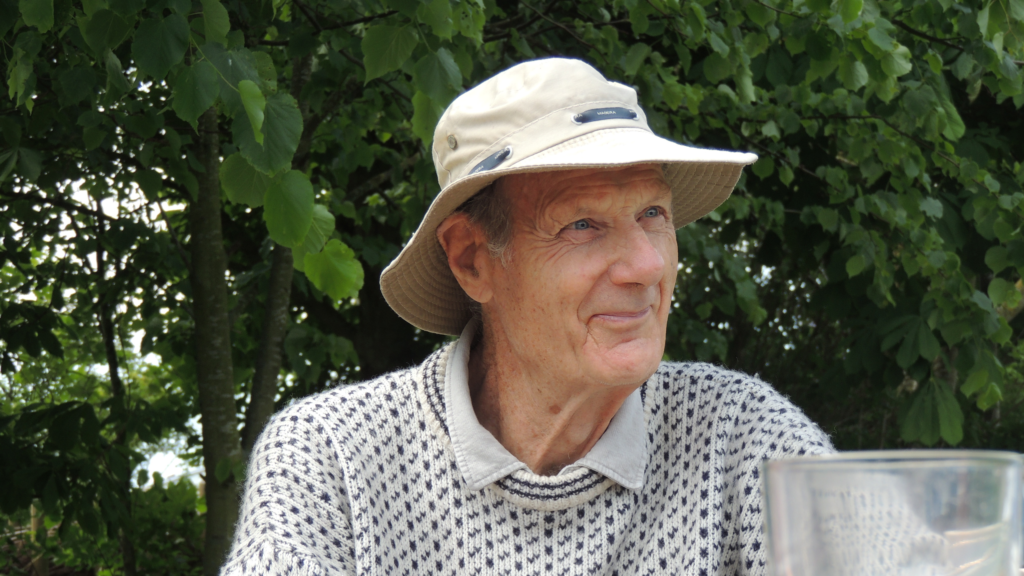
Michael was Professor for Rural Development at Gloucestershire University in England; a European Englishman, an inspiring teacher and enthusiastic activist on climate change until his last days.
He was a believer in European democracy, cohesion, integration, cooperation, and volunteering. He strongly supported every step of EU enlargement and insisted at every occasion possible that the West Balkan region needed fair negotiations and accelerated inclusion.
Michael co-founded and animated the European Agricultural and Rural Convention ARC and Forum Synergies. He co-founded and served as coordinator of PREPARE – Pre-accession Partnership for Rural Europe, he supported the launch of many national and regional Rural Parliaments, and was an ardent supporter and animator of the European Rural Parliament.
To his honour we have recently created the Michael Dower Award for Rural Resilience with Michael’s family and friends. It will be awarded to individuals or civil society organisations in Europe, at bi-annual gatherings of European Rural Parliament or other similar events.
The criteria for selection will include the successful engagement of communities in rural Europe, the encouragement of democratic governance, accomplishments in pan-European cooperation, and achievement in conflict mediation, social inclusion, capacity building, social innovation and other activities or action which foster and enhance rural well-being.
The kind of work that might be recognised could be practical, or research-based but leading to practical results. It should help to bring about changes in policies or practice, by recognising, for example, what a community has done to protect nature or adapt their lives to the pressures of climate change.
You may make proposals in time to the Selection Committee via any of our rural movements networks.
For encouragement, let me finally share with you Michael’s four principles of a fulfilled life:
Dare the impossible – be ambitious about what you can and what you want to do – punch above your weight.
Do it Now – whatever needs to be done. Postponing or avoiding action means losing substance, understanding, and time.
Help if you can – volunteer if you see others needing your support. Inspire people to do the same.
Be reliable – never promise what you cannot hold. Check what is within your capacity and your time before committing.
Thank you for having me at this wonderful gathering!
More
3rd Balkan Rural Parliament and Food Summit in Mostar, Bosnia and Herzegovina
A-ction, R-esilience, C-ritical Mass – Hannes Lorenzen’s Letter to 2023


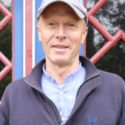
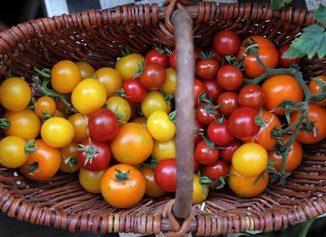
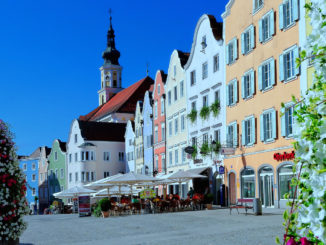
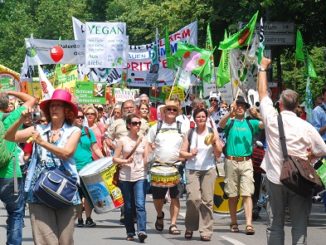
1 Trackback / Pingback
Comments are closed.